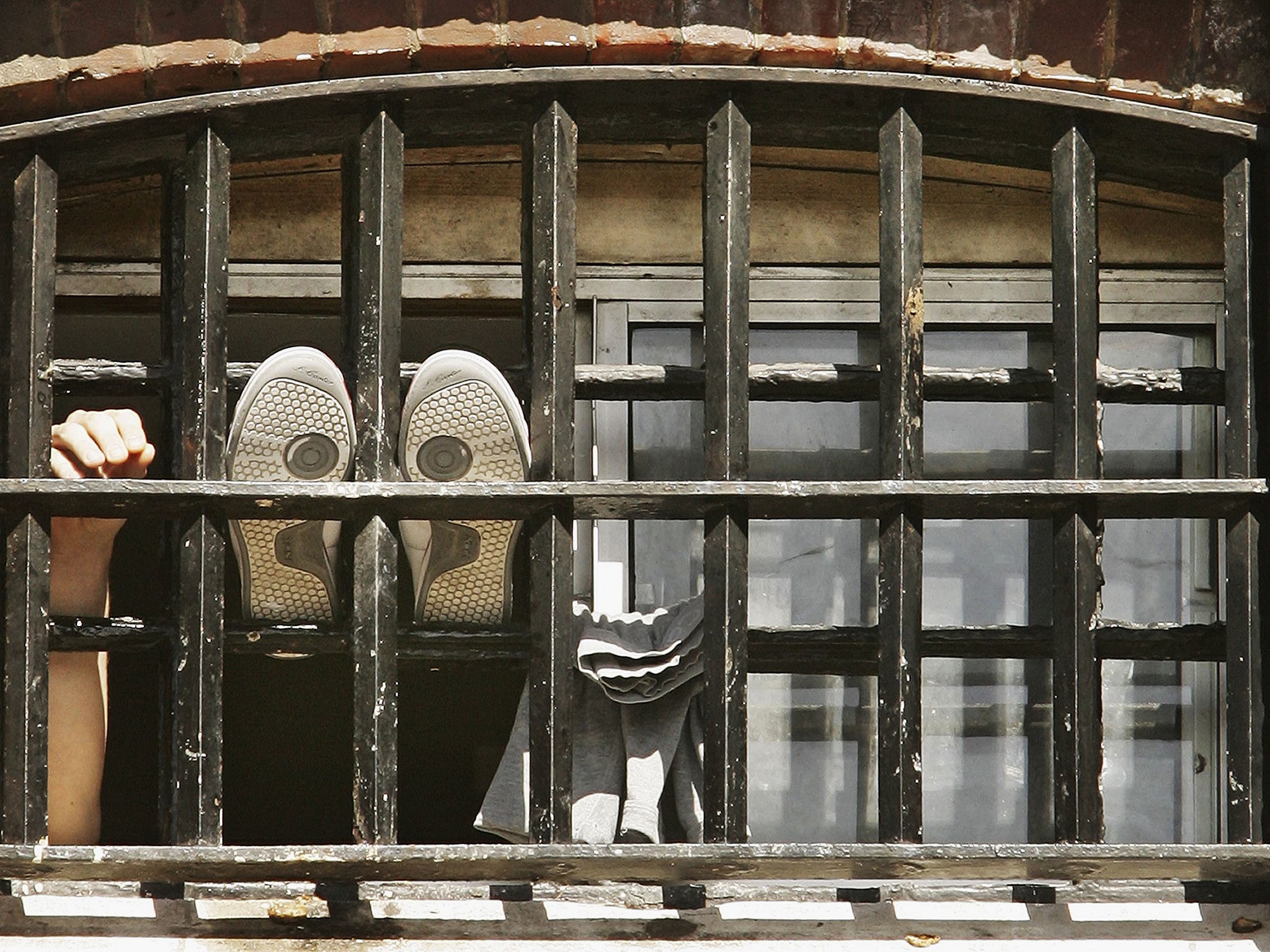Britain's prison crisis caused by 'poor political decisions' by Conservatives and huge cuts, former head of jails says
Exclusive: Former director-general of HM Prison Service says violence driven by ‘budget cuts, poor political decisions and frequent changes of political direction’

“Poor political decisions” by the Conservatives and huge budget cuts have caused the crisis in Britain’s jails, the former head of the prison service has said.
Phil Wheatley accused the justice secretary, David Gauke, of attempting to shift blame for violence and disorder in British prisons from his own government to the spread of former legal highs among prisoners.
In comments seen exclusively by The Independent ahead of publication in the annual Prisons Handbook, Mr Wheatley said the coalition government inherited a prison service that was “performing better than it had ever done” in 2010.
The civil servant, who served as director-general of HM Prison Service and its successor, the National Offender Management Service, from 2003 to 2010, said austerity saw the Ministry of Justice’s budget promptly slashed by almost a quarter and the situation worsened by different policies under six justice secretaries.
“Mr Gauke and ... Rory Stewart however appear intent on blaming the crisis they have inherited on new psychoactive substances (NPS), rather than budget cuts, poor political decisions and frequent changes of political direction,” he added.
“It is simply not acceptable in a comparatively rich democratic country to run unsafe prisons that do not provide decent conditions.”
Assaults between prisoners have doubled since 2010 and attacks on staff have tripled. Suicides peaked at 122 deaths in 2016 and fell to 70 last year, but the most recent official statistics showed self-harm incidents at a record high of almost 12,000 in just three months.

Poor conditions in some jails have been linked to devastating and costly riots, while inmates are managing to smuggle in illegal drugs and banned mobile phones.
Reoffending rates have also increased under the Conservatives’ tenure and the government was heavily criticised for putting the public at risk and increasing the number of convicts recalled to jail by part-privatising the probation service.
Mr Wheatley said the existence of a nationwide prisons crisis unleashed by the failures was “undeniable”, with the staggering rise in violence starting in 2013.
“As staff numbers and experience declined, so the incidence of violence, self-harm and suicide started to rise,” he added.
When the coalition government was elected, there were more than 19,900 prison officers, but the number had fallen to 14,900 within four years.
The number has since increased and the Ministry of Justice announced it had passed its target to recruit an additional 2,500 prison officers seven months ahead of schedule on Sunday.
Mr Gauke pledged that the recruitment drive would not slow amid efforts to crack down on gang lords running crime networks from behind bars.
“This will make a real difference to the safety and security of our prisons, ensuring they can fulfil their purpose – protecting the public, reducing reoffending and crucially, rehabilitating offenders,” he added.
But the Prison Officers’ Association accused the government of misleading the public, saying the 3,111 new recruits would not bring staffing back to its former level.
Chair Mark Fairhurst said: “We have lost in excess of 7,000 frontline staff since 2010 and it is vital that this figure is replaced.

“Attrition rates in some areas exceed 30 per cent and it is becoming apparent that more and more experienced staff are leaving the service.”
Mr Wheatley also raised alarm about the loss of experienced prison officers, as statistics show that a third of staff have less than three years’ experience.
“There is a causative link between staff reductions and a frightening increase in violence,” he added.
“Neither the Scottish Prison Service nor the Northern Irish Service, where staffing ratios of officers to prisoners remain much more generous, have experienced the same rise in violence and self-harm.”
Mr Wheatley made a set of urgent recommendations including increasing staff numbers, improving retention and bringing policy and operations management together.
“Above all the senior management of the service, who have loyally done their duty trying to accommodate the frequent changes introduced by a fluctuating cast of ‘here today, gone tomorrow’ politicians, should be allowed to get on with managing prisons sensibly – rather than having to spend fruitless hours handling the changing whims of their ministers,” he concluded.
“There is no quick fix, the sad truth is that it is relatively easy to make a good prison bad, but much harder to repair the damage.”
His comments are to be published in The Prisons Handbook 2018, which will be released in full next month.
The editor of the document, described as the “bible for the prison service in England and Wales”, said jails were more dangerous than at any time since records began.
Mark Leech told The Independent: “The courts don’t send people to prison so they can be subjected to assault, prison officers don’t go into work to be attacked.
“The public have an expectation that prisoners will be rehabilitated and reformed when they come out and don’t go back in against but we don’t do that.”
Mr Leech accused the government of failing to fund its stated ambitions for reform and rehabilitation, leaving courses and treatment programmes for inmates falling short.
“The government either has to open the gate to reduce the population or open the purse to properly fund more staff,” he added.
A Ministry of Justice spokesperson said frontline staffing numbers are now at their highest for five years.
The government is working with prison governors in attempts to keep officers in their posts and a government-owned facilities management company, Gov Facility Services Ltd, has taken over facility management from privatisation giant Carillion.
Join our commenting forum
Join thought-provoking conversations, follow other Independent readers and see their replies
Comments
Bookmark popover
Removed from bookmarks